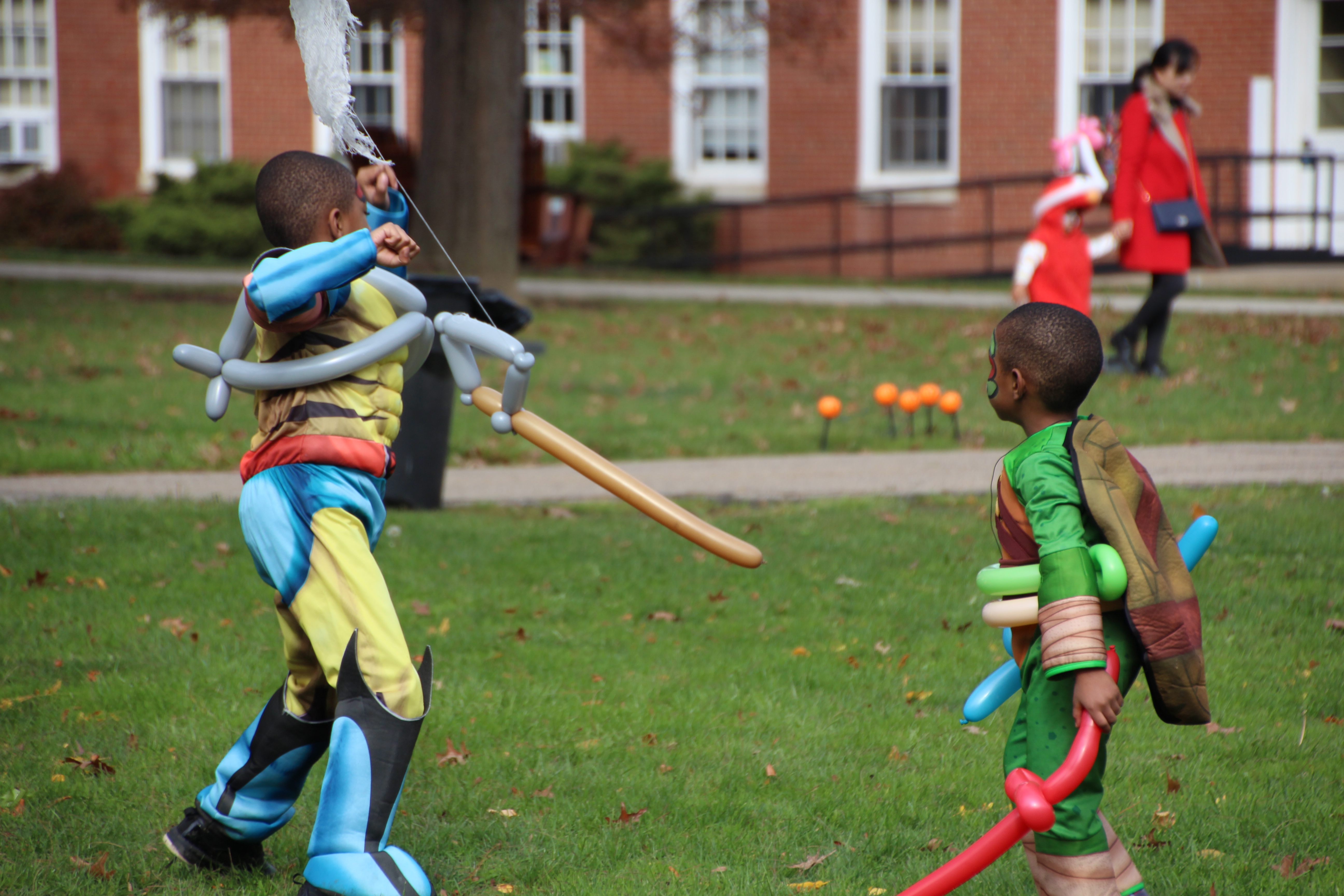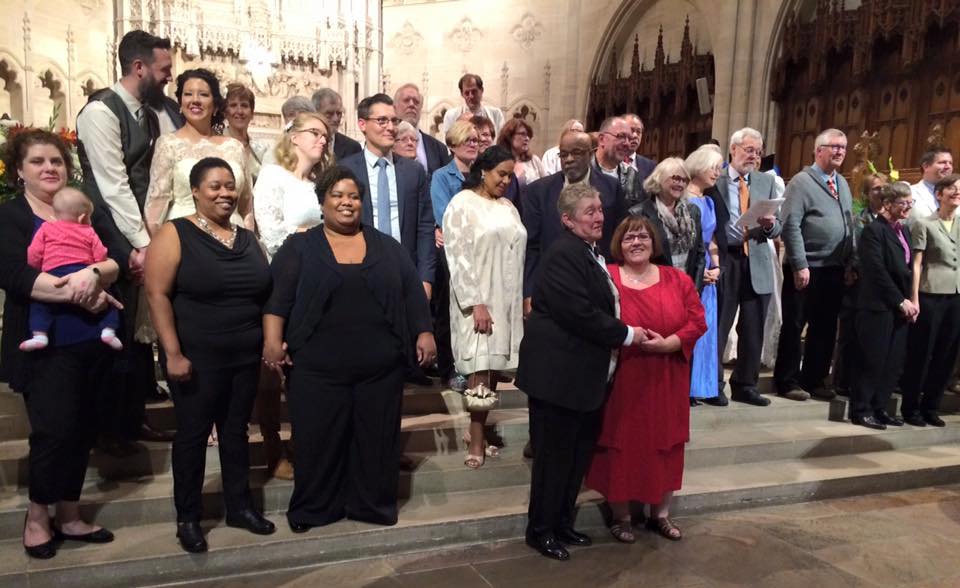By: Teri Bradford
Campus police officers are an important part of the college experience and are on campuses across America and Chatham is no different. Chatham Police are here to work with the community to keep this learning environment safe and secure.
There has been talk in recent years, however, that there has been a lack of trust and interaction between the campus community and the officers in charge of protecting us.
“I believe that the connection between students and the [Chatham Police] is dwindling,” said sophomore student Asia Williams, who thinks the connection is lost when students don’t know who the officers are. “Last year we were introduced to the chief and the few officers on duty. This year, as the number of students grows, so does the number of new officers. It’s important for the students to feel safe and to be aware of exactly who is here to protect us.”
“I’m out on campus as much as I can to get to know students,” said Chief of Police Donald Aubrecht (affectionately known simply as ‘Chief’) at a Chatham Student Government meeting at the beginning of October.
He attended CSG to help get a conversation between students and Chatham Police started.
“I encourage officers to do that. We’re working on how to get all officers on all shifts to work on the same page,” he said.
Aubrecht discussed working with the Deans and ultimately with Resident Assistants and Graduate Resident Assistants, as well. RA’s and GRD’s are trained to reach out to Chatham Police in case of emergencies or risky activities that may happen within the dorm halls.
“If you know the officer you’re dealing with, and the officer knows you, [things work out better],” Aubrecht said.
Some students, however, think the relationship between students and Chatham Police is one that may just be misunderstood.
“Students would like a more open dialogue, but I also feel the importance in kind of having a separation between students and public safety officers so they can still be seen as authority figures,” said Alice Shy, a junior. “I want them to be seen as people who can protect me. I think people get the lines blurred. Students need to understand that the roles of public safety officers are not to drive them around but to protect them. If they’re picking them up, then they can’t take care of things here. If it came down to it, then they would have to weigh the options of what’s more important.”
Shy touches on one of the most talked about issues on campus: will Chatham Police pick up a stranded student in Pittsburgh?
Aubrecht makes his expectations clear on what Chatham Police will do for Chatham students.
“If you’re down on the South Side, and you’ve been drinking, we’ll come and get you,” said Aubrecht. He told CSG that this scenario includes students in unsafe situations such as missing the last [Port Authority] bus at night, stranding them. He identified the location Chatham Police will go to as Downtown Pittsburgh, Shadyside, South Side, Squirrel Hill, and Oakland. He also included students who need to use the Chatham shuttles to get to class or a hospital.
“If you miss the shuttle, and it’s 30 minutes to the next one, call us. We’ll get you there, and we’ll get you back. The shuttle doesn’t go to Mercy or Magee [Women’s Hospital of UPMC] but we will,” said Aubrecht.
Some students, however, say that this promise is too good to be true and that Chatham Police makes using them as a resource complicated. Sophomore Maya Carey had a negative experience in the past.
“I was over in the South Side when I was a wee little first year. We had gone to the hookah bar,” she said. “We weren’t even intoxicated; we were just stranded past 2 a.m. in the South Side. None of us knew how to use the bus system except we knew that the buses ended at 2 a.m.”
Carey and two friends — one of whom was an international student — weren’t sure how to get back to campus, and they were out of money, so they called Public Safety in hopes of getting a ride back to Chatham.
“They were so angry at us. They hung up on us once, I think,” she said. “They said they would get a supervisor, but they never did so we had to call back 20 minutes [later].”
By some measure of luck, Carey and her friends found a bus on its last run for the night, but it took them to an unfamiliar part of Oakland.
“Chatham Police reluctantly picked us up from [where the bus had dropped them off] and were chastising us the entire way back to campus,” Carey said.
“They were not happy to drive out to Oakland much less SouthSide at 3 in the morning, but I wasn’t happy about being stranded at 3 in the morning,” she continued. “People were drunk and throwing up [in the street]. I was scared, I had never been to Pittsburgh or lived in the city before.”
“There should be a consensus between all officers on what they can and can’t do. They should all be there at once to get that clear with students,” said Shy.
Aubrecht doesn’t dismiss these statements but said this is a result of how things were mishandled in the past by the man who had the position of Chief before him. He said that officers were not inviting to students and made things difficult for them. Aubrecht said he has worked hard to change this and all of the officers, new and returning, have come a long way, even from last year.
“I have talked to all of the officers about how important it is that students get back here safe and unharmed. [Some officers] were so used to how it used to be that it was hard for them to change,” he said about previous attitudes. “I really want to work to make sure [students] are safe; that’s my priority. If something like [Maya’s experience] happens, I want to know. When we don’t do well, I want to know so we can do better.”
Coordinator of Residence life, Kim Small agrees with Chief Aubrecht. She advises students to act if they feel there is an issue.
“I don’t think there is a disconnect [between students and Chatham Police] but, if students feel there is a problem, then they should bring the information forward,” said Small.
Though negative stories spread across campus quickly, some students have had positive experiences with Chatham Police.
Juliet Casinelli, a junior transfer student, has only recently interacted with Chatham Police for the first time after breaking her foot a few weeks ago.
“Breaking any bone most certainly makes you vulnerable, and you lose some of your independence. The Public Safety Officers here at Chatham helped me adjust to that so easily,” said Casinelli. “From helping me adjust my crutches to the correct length to giving me rides from the apartments to the main campus, they were always just a phone call away.”
In Casinelli’s experience, officers are always willing to help out.
“The few that I had interactions with were fabulous and really helped me out in my time of need. Our chief here at Chatham especially, he went out of his way to help me with parking and making this process as easy as possible,” she said. “Having officers on campus you can trust is an indescribable feeling. Though we may not reach out to them every day, knowing that we have the option to really makes being and living on campus a better experience.”
At the conclusion of the CSG meeting with Chief Aubrecht, students and Chatham Police both were open to start creating a positive relationship within the community.


